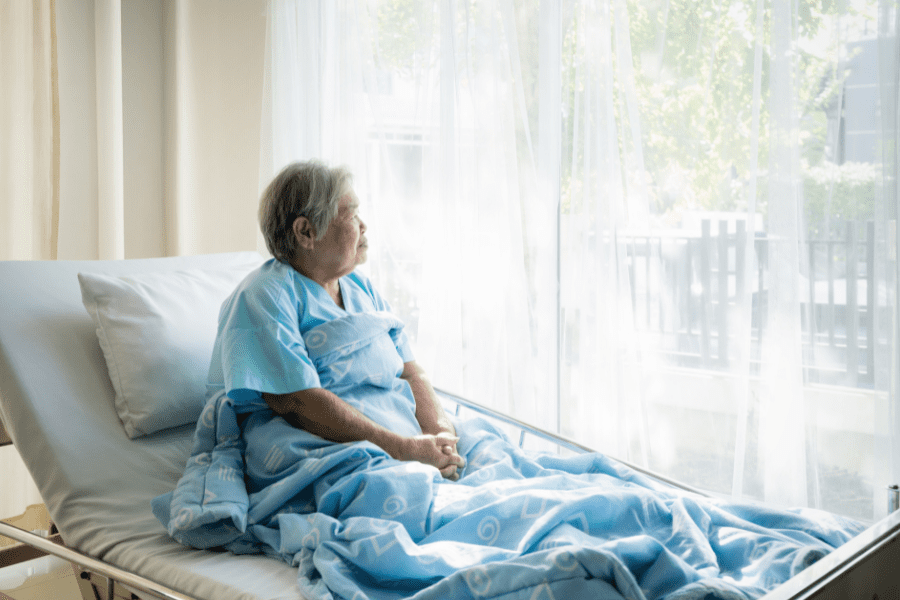Recently released figures show that bed congestion in UK hospitals has reached record levels. Patients healthy enough to be discharged occupy nearly 13,000 hospital beds, or one in seven. Bed blocking affects older patients who have been hospitalised for acute illness. They are unable to dress themselves or prepare meals. If a suitable care package is not available at home, they must remain as patients in the ward.
Bed Blocking Causes NHS Crisis
Bed blocking can have a significant impact on the NHS, as they can lead to shortages of available beds. It increases waiting times for patients who need urgent care. This can also lead to a backlog of patients in an emergency department, resulting in long wait times and a higher risk of complications or even deaths.
Aside from the impact on patients, bed blockages can also be costly to the NHS. The cost of care increases as patients stay longer in the hospital, and it ties up resources that could be better spent elsewhere.
To address the problem of bed blockage, the NHS and social care services need to work together. They need to ensure timely discharge of patients. They also need to make sure that appropriate support is available to help them in transition back to their homes or to other care settings. This may involve improving communication among healthcare providers, social services, patients, and their families. It also includes investing in community-based services and facilities to support patients after their discharge from the hospital.
Bed overcrowding is a significant problem for the NHS. Solving it will require a coordinated effort among healthcare providers, social services, patients, and their families. Working together, we can ensure that patients get the care they need in a timely manner. This also reduces costs and improves outcomes for all involved.
Solution
One solution that can help reduce bed blocking is to implement telecare in the patient’s home. When the hospital deems a patient mentally fit for discharge and there is an appropriate aftercare package available to support them, this can reduce the pressure caused by bed blocking. Often, hospital discharge staff insist on the installation of a telecare system (or personal alarm) before discharging the patient.
Telecare24 offers a same day dispatch service to help hospitals discharge patients quickly and safely. Our Dispatch Services Department guarantees the delivery of a personal alarm the next working day, enabling the patient to return home and continue their recovery. Using a personal alarm allows patients to sound an alarm when they are uncomfortable or need help.
If you work in a discharge team or if you have a relative who would benefit from a personal alarm and would like to find out how Telecare24 can help you discharge patients quickly, call us on 0800 180 85 40 or email us at [email protected].
Thank you for taking time to read this article. Check out our blogs for more useful information like this.





